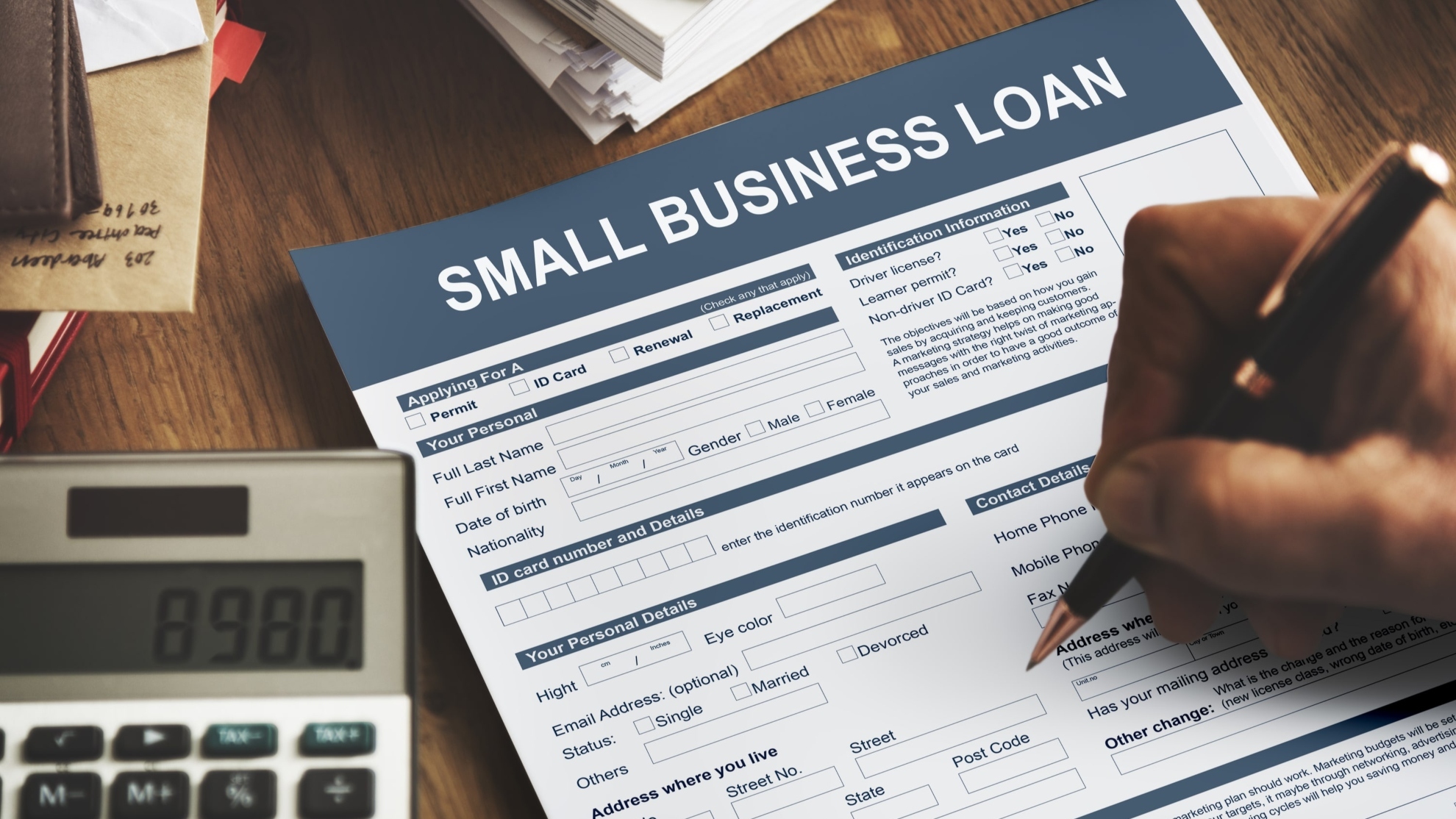
Best Long-Term Small Business Loans
Best Long-Term Small Business Loans: You’ve got a solid business plan and a vision for your company’s future growth, but you need financing to make it happen. We get it – that’s why we put together this guide on the best long-term small business loan options. Whether you need funding to open a new location, invest in equipment upgrades, or inject working capital into your growing operation, a term loan can provide that critical capital injection to take your business to the next level over 3-10 years or more.
But with so many loan products out there, how do you choose one that matches your business goals without breaking the bank on interest? We’ll walk you through the pros and cons of SBA loans, short-term loans, lines of credit, and alternative online lenders to find your best fit. Let’s dive in!

What Are Long-Term Small Business Loans?
Long-term small business loans provide financing for your business over an extended period of time, typically 3 to 25 years. These loans allow you to spread out repayment over many years at lower monthly payments. They are a popular choice for small businesses looking to purchase real estate, equipment, or vehicles with high upfront costs.
Types of Long-Term Loans
The two most common types of long-term small business loans are:
- Term loans: Offer a fixed amount of money repaid over a fixed time period with interest.They typically have lower interest rates than short-term loans.
- SBA loans: Guaranteed by the U.S. Small Business Administration and issued by partnering lenders like banks. SBA loans include options like 7(a) and 504 loans to finance real estate and equipment.
Benefits of Long-Term Loans
Some of the main benefits of long-term small business loans include:
- Lower monthly payments. Longer terms mean payments are spread out over many years, reducing the burden on your business’ cash flow.
- Opportunity to invest in growth. With more affordable payments, you have more capital to put towards expanding your business.
- Chance to build equity. If used to purchase real estate or equipment, long-term loans allow you to build equity as you pay down the principal.
- Improved cash management. Predictable monthly payments help with budgeting and managing your business’ finances over the long run.
To qualify for a long-term small business loan, you will need good credit, substantial collateral or guarantees, and a solid business plan showing your ability to repay the loan. Interest rates will depend on the overall health and financials of your business as well as the type of loan you choose. Long-term financing can be an important tool for achieving your business goals and setting up future success.
READ ALSO: The Top 5 Small Business Loans You Need to Know About
Benefits of Long-Term Loans for Small Businesses
Long-term small business loans, like SBA loans, have significant benefits over short-term options. As a small business owner, securing reliable long-term financing gives you stability and flexibility to grow your company.
1. Predictable Payments
Long-term loans typically have fixed interest rates and consistent monthly payments that don’t change. This makes it easy to budget and forecast your expenses. You’ll know exactly how much you need to pay each month for the life of the loan. Short-term loans often have variable rates and payments that fluctuate, introducing uncertainty.
2. Lower Interest Rates
Long-term loans usually offer lower interest rates than short-term financing. Lenders see long-term borrowers as less risky since the loan is paid off over a longer period of time. This results in a lower annual percentage rate (APR) which saves you money. Short-term loans have higher rates to compensate the lender for the increased risk.
3. More Affordable Payments
Long-term loan payments are spread out over a longer period of time so each monthly payment is lower. This makes the financing more affordable and easier to pay off. Short-term loans require full repayment in a short period so payments tend to be very high.
4. Tax Benefits
The interest paid on long-term small business loans may be tax deductible as a business expense. Consult your tax professional to determine eligibility. This can provide substantial tax savings over the life of the loan.
5. Flexibility
Long-term loans provide flexibility since funds can be used for major expenses like equipment, real estate, working capital, or refinancing other debt. You have time to allocate the money where it’s needed most to support the success and growth of your company. Short-term loans typically need to be repaid too quickly to finance anything other than temporary or emergency needs.
In summary, long-term small business loans offer stability, lower costs, tax benefits, and flexibility that short-term options cannot provide. For these reasons, long-term financing is ideal for establishing a solid foundation to build your business upon.
Types of Long-Term Loans for Small Business Owners
As a small business owner, you have several options for long-term financing to consider. The most common types are:
1. Term Loans
Term loans are one of the most popular long-term small business loans. They provide you with a lump sum of cash upfront that you pay back over a fixed period of time (typically 3-25 years) with interest. Term loans can be used for almost any business purpose, like purchasing equipment, real estate, vehicles, or refinancing existing debt.
To qualify for a term loan, you’ll need a solid business plan, financial statements, tax returns, bank statements, and collateral. Interest rates vary depending on your credit score and financial history. Term loans typically have fixed interest rates so your payments remain the same over the life of the loan. Some lenders may charge origination fees or prepayment penalties if you pay the loan off early.
2. SBA Loans
SBA loans are government-backed small business loans with competitive rates and terms. The most common types are 7(a) loans which can be used for working capital, equipment, real estate and more. SBA 504 loans are for purchasing or improving commercial real estate.
To qualify for an SBA loan, you must meet the SBA’s size standards, be in business for a minimum period of time, and not have access to other financing. The application process can take 2-3 months and requires detailed financials and documentation. However, SBA loans have competitive fixed rates and long repayment terms of up to 25 years for real estate and equipment.
3. Commercial Real Estate Loans
If you want to purchase or improve an office building, retail space or warehouse, a commercial real estate loan is a good option. These loans typically have terms of 5-25 years and fixed interest rates. To qualify, you’ll need excellent credit, financials, appraisals, and often personal guarantees or collateral. Commercial real estate loans usually require a sizable down payment, often 25% or more of the property value.
4. Equipment Loans
Equipment loans provide financing to purchase essential business equipment like machinery, computers, tools, and vehicles that will last more than a year. Equipment loans usually have terms of 3-10 years and fixed rates. Qualifying is similar to term loans and depends on your credit, financials, business viability and the equipment value. Interest rates vary but are often a bit higher than other long-term loans.
How to Qualify for the Best Long-Term Small Business Loans
To qualify for the most competitive long-term small business loans, you’ll need to make sure your business is in the best financial shape. Lenders will evaluate your business’s creditworthiness and cash flow to determine if you qualify for their lowest rates and most flexible terms.
Focus on building your business credit. Establish a solid payment history with vendors and creditors. Pay all bills on time. Check your business credit report regularly to ensure there are no errors. A good business credit score will make you a more attractive borrower.
Improve your cash flow. Lenders want to see that your business generates enough income to comfortably repay the loan. Work on increasing sales and profits. Reduce unnecessary expenses. Make sure you have enough cash on hand in case of any emergencies. Cash flow is key.
Provide collateral. For the best rates on long-term loans, you may need to pledge business assets like equipment, vehicles, or property to secure the loan. The more collateral you can provide, the lower your interest rate is likely to be. Make sure any assets you pledge as collateral are properly valued.
Develop a solid business plan. A well-thought out business plan shows lenders you have a clear vision and strategy for business growth. Include financial projections that demonstrate your ability to repay the loan. Your business plan should map out how the funds from a long-term loan will be used to generate more revenue and profitability.
Maintain good personal credit. For small business owners, your personal credit history and FICO score will be evaluated along with your business’s finances. Keep low personal debt levels and pay all bills on time to ensure a good personal credit score. Any signs of financial distress on your personal finances could hurt your chances of qualifying for a long-term small business loan.
Following these key steps to strengthen your business’s financial position and creditworthiness will put you in the best position to qualify for affordable, long-term small business loans. With the right preparation, you can find financing that provides the funds and flexible terms that your business needs to succeed.




